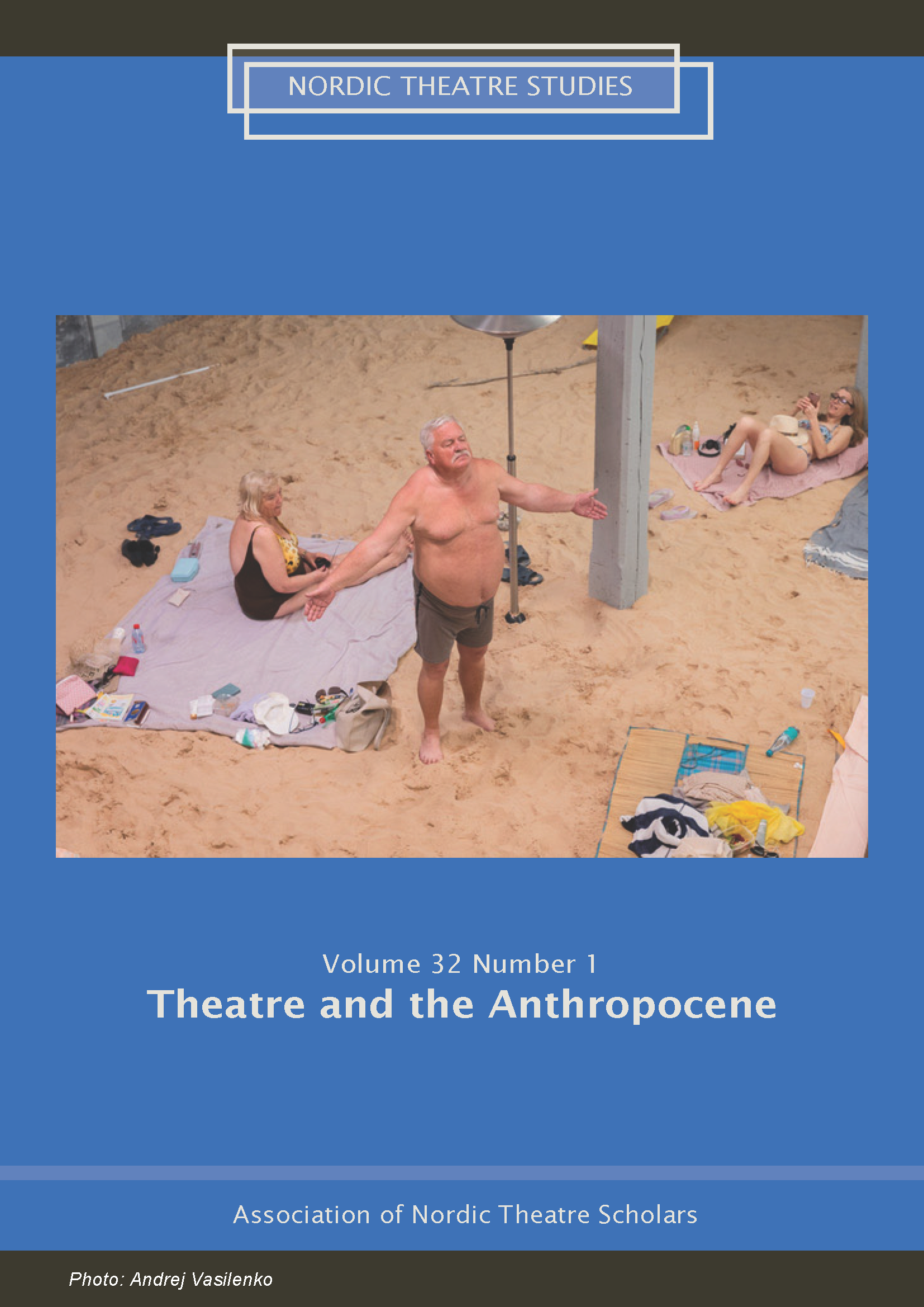Sounding the Arctic in Chantal Bilodeau’s Climate Change Plays
DOI:
https://doi.org/10.7146/nts.v32i1.120408Keywords:
Climate change, Soundscape, Sonic cultures, Arctic, Inuit, Canada, Norway, Interdependence, Relationality, Theory and practiceAbstract
Quebec-born playwright Chantal Bilodeau has been responding to the challenges of dramatizing anthropogenic climate change by developing an eight-part Arctic Cycle, each play of which is set in one of the nations that claims Arctic territory. Sila (2014) immerses audiences into a complex network of humans, animals, and mythical beings crisscrossing the Canadian Arctic. These movements circle around the Inuit concept of sila, which is the life-giving force of breath and voice. Thus, the sonic world of Sila focuses on voices speaking words, on performance poetry, and on the sounds of breath and wind. Bilodeau’ s second Arctic Cycle play, Forward (2016), addresses the long-term impact of Fridtjof Nansen’s polar exploration of the 1890s on Norway’s economy and society. In terms of sound, Forward features multiple musical performances ranging
from traditional songs to European opera arias and Lieder to contemporary Norwegian electro-pop. The sonic features of both plays stress interdependence across time, space, as well as (non-)human, earthly, and metaphysical realms. Sila and Forward address climate change in a non-universalizing manner which promotes a heterarchical (rather than hierarchical) aesthetic fit for a growing awareness of planetary relationality.
Downloads
Published
How to Cite
Issue
Section
License
The copyright belongs to the authors and Nordic Theatre Studies. Users can use, reuse and build upon the material published in the journal but only for non-commercial purposes. Users are allowed to link to the files, download the files, distribute the files on a local network (preferably by links), upload the files to local repositories if their institutions require them to do so, but not republish the files without proper agreements with the journal and the author.

